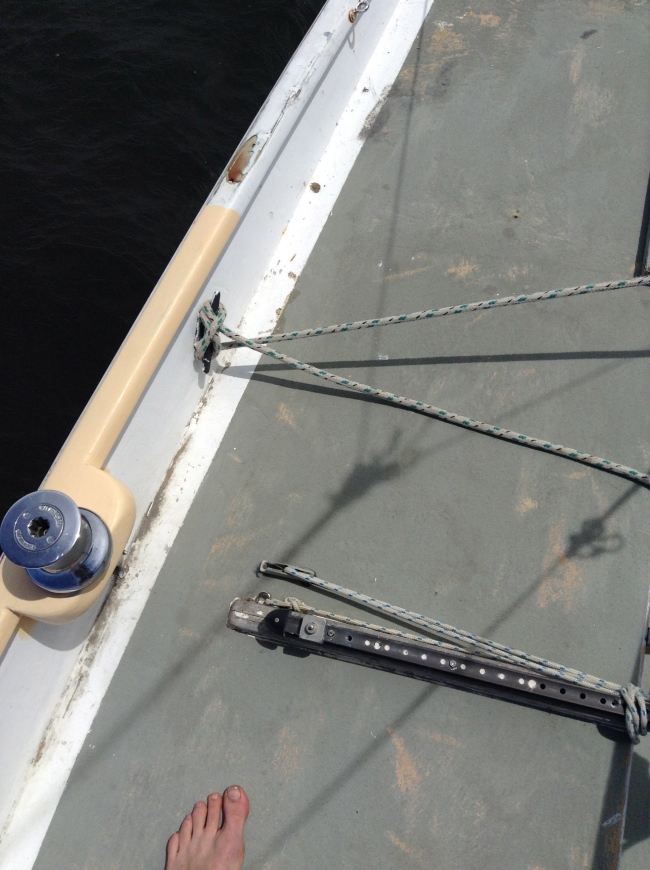Letting go
‘You’re not going too?’ asks the man in the checked flannel shirt at the jetty. ‘No’, I reply, ‘This is their adventure’. The now young man whose bag I’ve packed since his first school camp at the age of seven, is now at sea. On a fourth-hand boat that was owned by a friend of a friend, with squashed sultanas under vinyl cushions in the cabin, coffee granules petrified on to a varnished pine shelf. And one crew, a friend who tells me in the car – presumably to reassure me – that he’s been sailing since the age of three.
‘I’m so happy’, Alex says, his face bobbing above the hatch just two days ago, having tricked me to come aboard to clean the cabin with a cloth and meths. And he really is happy. Amazed at a life that has given him the thing that he’s always wanted. ‘Boat’, he’d say to John and me, at age eleven, thirteen and sixteen. ‘Boat’. As if this single word explained everything the world could possibly offer. The source of the Nile. All the tea in China.
Three years ago my daughter Emma stood in the gloom of our bike shed with my husband and me. After thanking us for her new bike – a birthday present – she said, quite spontaneously, ‘But what shall I long for now?’ Looking back, what she longed for next was even bigger than a bike, it was a dog. A dog which, like Alex’s boat, turned out to be much better than she’d imagined.
And now her brother has a boat. Quite a daggy boat in some ways – there’s nothing glamorous about the interior and the exterior is in need of work. But still, a sturdy keel boat which he is currently sailing 60kms from Cygnet to Hobart, with a friend who’s been sailing since he was three. Along with four sandwiches, a bag of apples, two bars of chocolate, bolognese sauce but no pasta, oatcakes and cheese. Plus a plastic bucket from the laundry, the kitchen scissors, a new lantern and the picnic knife from my car. And a radio that may or may not reach the coastguard in an emergency.
‘The Northerly will slow them up’, says the man in the checked flannel shirt. I nod and agree, pretending that I knew a Northerly was expected – rather than the Southerly my son had told me cheerily at breakfast was forecast. The boat is in the distance now. Turning towards the car, I congratulate myself on not crying. As I turn the key in the lock I swear under my breath. There, on the dashboard, are the sunscreen and sunglasses I’d determined Alex would take.
At least, I say to myself, it will give me something minor to worry about – rather than the Northerly, the untested boat, and the distinct possibility of their sailing at night with no lights. As my car turns toward home, they motor out of one of the most beautiful bays in Tasmania, about to sail around one of the most lovely coastlines in the world. God speed.


